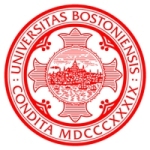Luca Dal Negro, Boston UniversitySilicon-based Nanomaterials and Plasmonic StructuresAbstract:The big scientific challenge behind silicon (Si) photonics is the development of Si-based active devices, i.e. efficient LEDs, sensors, modulators and ultimately of silicon-based lasers [1]. It has been widely recognized that the development of efficient silicon-based light emitting diodes (LEDs) and laser structures would constitute a technology with an enormous societal impact, enabling full on-chip integration of optical functions within the impressive volume market of integrated microelectronics, namely CMOS technology. The purpose of my research activities is: a) to engineer novel, nanostructured-based materials solutions for CMOS-compatible light sources and lasers, b) to design and fabricate novel metal/dielectric plasmon-coupled nanostructures for the control of local electromagnetic fields on Si chips. In this talk I will give a panoramic overview of my research activities in Silicon-based photonics and plasmonics. The research is aimed at engineering potential new solutions for CMOS-compatible light emission and light control in silicon-based systems of reduced dimensionality, where quantum confinement, surface chemistry and plasmonic coupling play a crucial role in determining the optical properties of nanomaterials. I will review the main results obtained along two closely related research directions: the use of nano-sized silicon to achieve efficient light emission and optical amplification [2-4] and the possibility to control and manipulate deeply confined light states in metal-dielectric nanostructures without translational invariance [5]. Finally, I will discuss our recent work on E-beam fabrication of aperiodic metal/dielectric nanostructures and plasmonics slot waveguides as a very promising approach for transport and sub-wavelength manipulation of electromagnetic fields on Si chips [6]. References1. N. Savage, "Light from Silicon: Holy Grail", IEEE Spectrum, 59, January 2004. 2. L. Pavesi, L. Dal Negro, C. Mazzoleni, G. Franzo and F. Priolo, "Optical gain in silicon nanocrystals", Nature, v. 408, p. 440-444, 2000. 3. L. Dal Negro, J.H.Yi, Y.Yi, V.Nguyen, J.Michel, and L.C.Kimerling, "Spectrally enhanced light emission from aperiodic photonic structures" Appl. Phys. Lett., v. 86, p. 261905, 2005. 4. L. Dal Negro, J.H. Yi, J. Michel, L. C. Kimerling, T.-W. F. Chang, V. Sukhovatkin, and E. H. Sargent, "Light Emission Efficiency and Dynamics in Silicon-rich ilicon nitride films", Appl. Phys. Lett., v. 88, p. 233109, 2006. 5. L. Dal Negro, A. Gopinath, N. Feng, and M. Brongersma, A Method for the extension in 2 and 3 dimensions of deterministically generated aperiodic optical materials, patent disclosure Boston University and Stanford University, 2006. 6. N. Feng, M. Brongersma, and L. Dal Negro, "Metal-dielectric slot waveguide structures for the propagation of surface plasmon polaritons at 1.55mm", accepted for publication in IEEE Journal of Quantum Electronics, 2007. BiographyLuca Dal Negro received both the Laurea in physics, summa cum laude, in 1999 and the Ph.D. degree in semiconductor physics from the University of Trento, Italy, in 2003. After his Ph.D., in 2003 he joined MIT as a post doctoral associate. Since January 2006 he is Assistant Professor in the Department of Electrical and Computer Engineering at Boston University. He manages and conducts research projects on silicon-based photonic materials and devices, plasmonic structures and semiconductor laser spectroscopy. His main focus is currently on quantum dots spectroscopy, complex photonic crystals structures and nano-photonics. He has authored and coauthored more than 50 technical articles.
|
|||||



